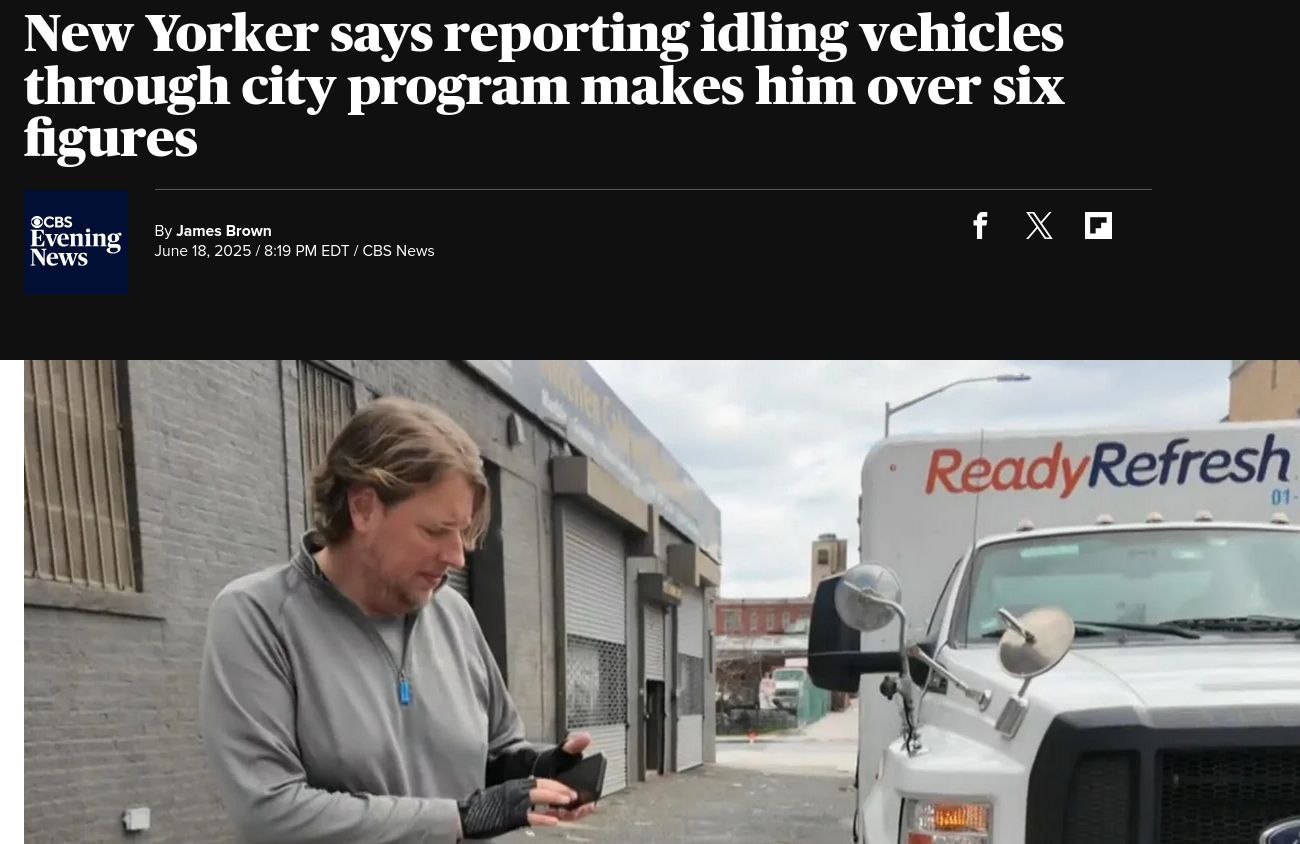view the rest of the comments
Fuck Cars
A place to discuss problems of car centric infrastructure or how it hurts us all. Let's explore the bad world of Cars!
Rules
1. Be Civil
You may not agree on ideas, but please do not be needlessly rude or insulting to other people in this community.
2. No hate speech
Don't discriminate or disparage people on the basis of sex, gender, race, ethnicity, nationality, religion, or sexuality.
3. Don't harass people
Don't follow people you disagree with into multiple threads or into PMs to insult, disparage, or otherwise attack them. And certainly don't doxx any non-public figures.
4. Stay on topic
This community is about cars, their externalities in society, car-dependency, and solutions to these.
5. No reposts
Do not repost content that has already been posted in this community.
Moderator discretion will be used to judge reports with regard to the above rules.
Posting Guidelines
In the absence of a flair system on lemmy yet, let’s try to make it easier to scan through posts by type in here by using tags:
- [meta] for discussions/suggestions about this community itself
- [article] for news articles
- [blog] for any blog-style content
- [video] for video resources
- [academic] for academic studies and sources
- [discussion] for text post questions, rants, and/or discussions
- [meme] for memes
- [image] for any non-meme images
- [misc] for anything that doesn’t fall cleanly into any of the other categories

That is wear and tear on your engine, and the meager benefits you get from that are far offset by the maintenance costs.
For example, my not so fuel friendly car has, over the course of 3 years, shut itself off at stop lights for over an hour and a half.
Through doing this an entire gallon of fuel has been saved.
Over 3 years.
It's engine down time is usually less than 10 seconds.
I get that it feels like this is a benefit if you have all of the cars everywhere doing it, but this ain't it. Even environmentally, the extra batteries we need to produce will be more harmful than the miniscule exhaust will be.
Service trucks will put many, many more miles on them in that 3 years than I will. Their idle time might be a great deal more if they're leaving it to idle while they go try to make a delivery. But, two things: those systems are ridiculously easy to turn off, by design, and diesel engines really don't like working that way. The wear and tear would be worse, more expensive, and more harmful.
I'm not saying throw your hands up and give up. I an saying that the service vehicles are the ones we actually should be making exceptions for. Even in a consumer car free society, we'll still need the service vehicles to do work.
You save 2 to 3 % on average and up to 7 % in pure city traffic.
Where are you that red lights are less than 10 seconds? Not many cars are going to get through a green light of below 10 seconds.
That just isn't supported by real world data. Manufacturers may claim that but they make a lot of claims that only apply to factory testing conditions.
Real world testing comes to the same conversion. 10 % saving in pure city traffic can be expected.
Only stopping for 1.5 hours on red lights over 3 years makes you an super extreme outlier. Now you don't specify the total distance in those 3 years, so perhaps you just don't drive at all, but realistically people drive something like 10'000 km per year, average speed around 50 km/h, time spent driving about 30'000 km / 50 km/h = 600 h. To only get to 1.5 hours at red lights would mean 10 seconds per hour of driving. I hope that makes it clear how unrealistic YOUR number is.
If every car in the US had auto stop and drove similar to yours, it would have stopped 190,000,000 pounds of CO2 from going into the atmosphere in those 3 years.
Extra batteries aren't required for Auto-stop. If battery wear was significantly faster due to the feature it wouldnt matter, batteries are much more recyclable than burnt gas.
I had auto-stop on my last car, and the battery made it 9 years before I finally had to replace it, and when the feature wasn't working (too cold out) it made a noticeable impact on my fuel economy, around 3-5 mpg.
one gallon over 60,000 miles. My guy, that just isn't the answer.
You're also assuming that it's only working at traffic lights. My auto stop would activate when the car was slowing down under 10mph. It also activates in car washes and when the car is parked.
But hey, fine, if saving 190 million pound of CO2 from entering the atmosphere buy turning off idling engines isn't the answer, what would you do to save that much CO2 from running ICE vehicles instead?